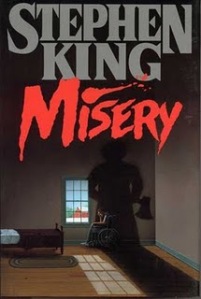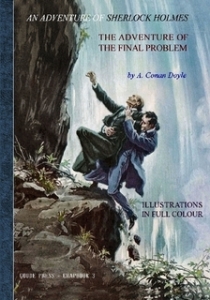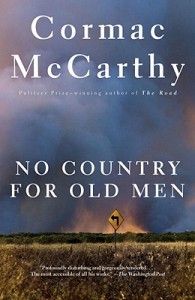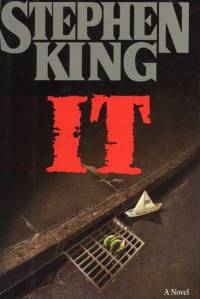Continuing the Top 50 villains in literature we have arrived at number
10. Annie Wilkes: The obsessed fan from Stephen King‘s Misery (Viking, 1987), Ms.  Wilkes is any celebrity’s nightmare. She personifies adulation that steps over every moral and social line of privacy. Despite being author Paul Sheldon’s “number one fan,” Annie keeps him prisoner in her home, going so far as to break his legs when he becomes well enough to leave. Not only does she demand he bring back to life the character of Misery, whom he killed off in the final novel in the popular series, she flies off the handle when he defends his latest book, based on his childhood about a group of friends who swear like sailors. She is quite mad.
Wilkes is any celebrity’s nightmare. She personifies adulation that steps over every moral and social line of privacy. Despite being author Paul Sheldon’s “number one fan,” Annie keeps him prisoner in her home, going so far as to break his legs when he becomes well enough to leave. Not only does she demand he bring back to life the character of Misery, whom he killed off in the final novel in the popular series, she flies off the handle when he defends his latest book, based on his childhood about a group of friends who swear like sailors. She is quite mad.
Can I? Yeah. You bet I can. There’s a million things in this world I can’t do. Couldn’t hit a curve ball, even back in high school. Can’t fix a leaky faucet. Can’t roller-skate or make an F-chord on the guitar that sounds like anything but shit. I have tried twice to be married and couldn’t do it either time. But if you want me to take you away, to scare you or involve you or make you cry or grin, yeah. I can. I can bring it to you and keep bringing it until you holler uncle. I am able. I CAN.
9. Cathy Ames: A cruel woman with a “malformed soul,” Cathy does some really  horrible things in the pages of John Steinbeck’s East of Eden (The Viking Press, 1952). Aside from manipulating men with her sexuality, the violent woman burns down her own home with her parents inside, killing them. If that wasn’t enough, she turns to a life of prostitution, in which she kills the owner of a brothel and takes over the business, transforming it into an infamous den of iniquity.
horrible things in the pages of John Steinbeck’s East of Eden (The Viking Press, 1952). Aside from manipulating men with her sexuality, the violent woman burns down her own home with her parents inside, killing them. If that wasn’t enough, she turns to a life of prostitution, in which she kills the owner of a brothel and takes over the business, transforming it into an infamous den of iniquity.
It seems to me that if you or I must choose between two courses of thought or action, we should remember our dying and try so to live that our death brings no pleasure on the world.
8. Professor Moriarty: The one criminal keen minded enough to keep pace with and  challenge Arthur Conan Doyle’s Sherlock Holmes, readers never actually meet him until what was originally intended to be Holmes’ final adventure, The Final Problem (Strand Magazine, December 1893). Holmes claims this mastermind behind a secret expansive criminal organization, is in fact, the detective’s equal in intellect. And thus, the battle between these two must be played out on equal ground. If not for outcry from Doyle’s fans, Holmes and Moriarty would have perished together at Reichenbach Falls in Switzerland.
challenge Arthur Conan Doyle’s Sherlock Holmes, readers never actually meet him until what was originally intended to be Holmes’ final adventure, The Final Problem (Strand Magazine, December 1893). Holmes claims this mastermind behind a secret expansive criminal organization, is in fact, the detective’s equal in intellect. And thus, the battle between these two must be played out on equal ground. If not for outcry from Doyle’s fans, Holmes and Moriarty would have perished together at Reichenbach Falls in Switzerland.
If I were assured of your eventual destruction I would, in the interests of the public, cheerfully accept my own.
7. Anton Chigurh: Perhaps one of the most insane characters to appear in contemporary  literature, Chigurh is a serial killer who is completely off his rocker (yes, I believe that is the professional term). In the pages of Cormac McCarthy‘s No Country For Old Men (Alfred A. Knopf, 2005), Chigurh’s displays of insanity are mind boggling; from random remorseless killing, to philosophical arguments over the state of being of a coin.
literature, Chigurh is a serial killer who is completely off his rocker (yes, I believe that is the professional term). In the pages of Cormac McCarthy‘s No Country For Old Men (Alfred A. Knopf, 2005), Chigurh’s displays of insanity are mind boggling; from random remorseless killing, to philosophical arguments over the state of being of a coin.
“You think when you wake up in the mornin yesterday don’t count. But yesterday is all that does count. What else is there? Your life is made out of the days its made out of. Nothin else. You might think you could run away and change your name and I dont know what all. Start over. And then one mornin you wake up and look at the ceilin and guess who’s layin there?”
6. Pennywise: If there weren’t already people in the world who suffer an irrational fear  of clowns (coulrophobia), reading Stephen King‘s It (Viking, 1986), would probably fill in the gap quite nicely. Pennywise is an evil clown in Maine with the ability to change shape and uses this ability to prey on the worst fears of the residents of Derry, Maine. Pennywise has been haunting the folks in Maine for centuries. In its current incarnation it is killing the children of Derry, its preferred prey.
of clowns (coulrophobia), reading Stephen King‘s It (Viking, 1986), would probably fill in the gap quite nicely. Pennywise is an evil clown in Maine with the ability to change shape and uses this ability to prey on the worst fears of the residents of Derry, Maine. Pennywise has been haunting the folks in Maine for centuries. In its current incarnation it is killing the children of Derry, its preferred prey.
In vain he thrusts his fists against the posts and still insists he sees the ghosts.

